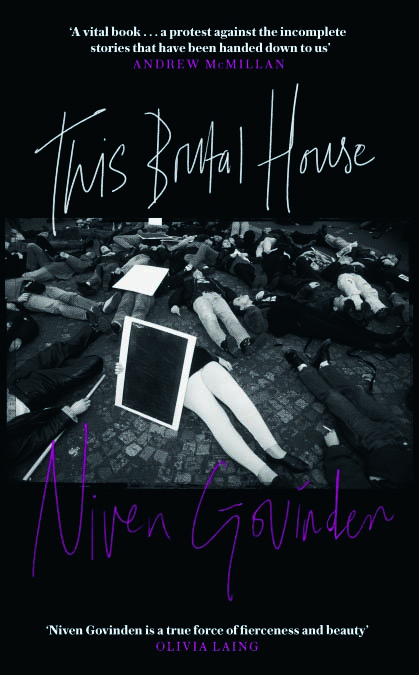The glitzy, bitchy sub-culture of the black and Latino vogue balls, with their fiercely contested “walks” and caricature of glamour, frequently lends a touch of exoticism to the mainstream, most recently in the TV series Pose.
But Niven Govinden’s challenging novel This Brutal House turns the camera away from the costumes and the catwalk, focusing instead on loving-yet-sometimes-oppressive family realness in the culture’s mainstream-apeing ‘Houses’, led and controlled by ‘mothers’.

On the steps of New York’s City Hall, five ageing ‘mothers’ mount a silent protest against the authorities’ lack of action over the disappearance of many of their ‘children’ – queer waifs and strays they have rescued from unaccepting homes.
Gripped by a religious fervour, the gay male elders gather their remaining children – now grown-up – like Jesus on the Mount of Beatitudes; although these are reluctant disciples, torn between gratitude
and embarrassment.
His intense writing style evokes that parental neediness and a sense of claustrophobia,
This is the beauty of This Brutal House. It is not merely an exploration of the way in which the vogue balls provided a sense of belonging for those whose sexual identities cast them as perpetual outsiders; it also captures the push and pull of families everywhere.
Govinden’s twist is that not all the disappeared children have fallen victim to bigots or a self-loathing trick. Some have tired of the mothers’ cloying possessiveness and left of their own volition.










